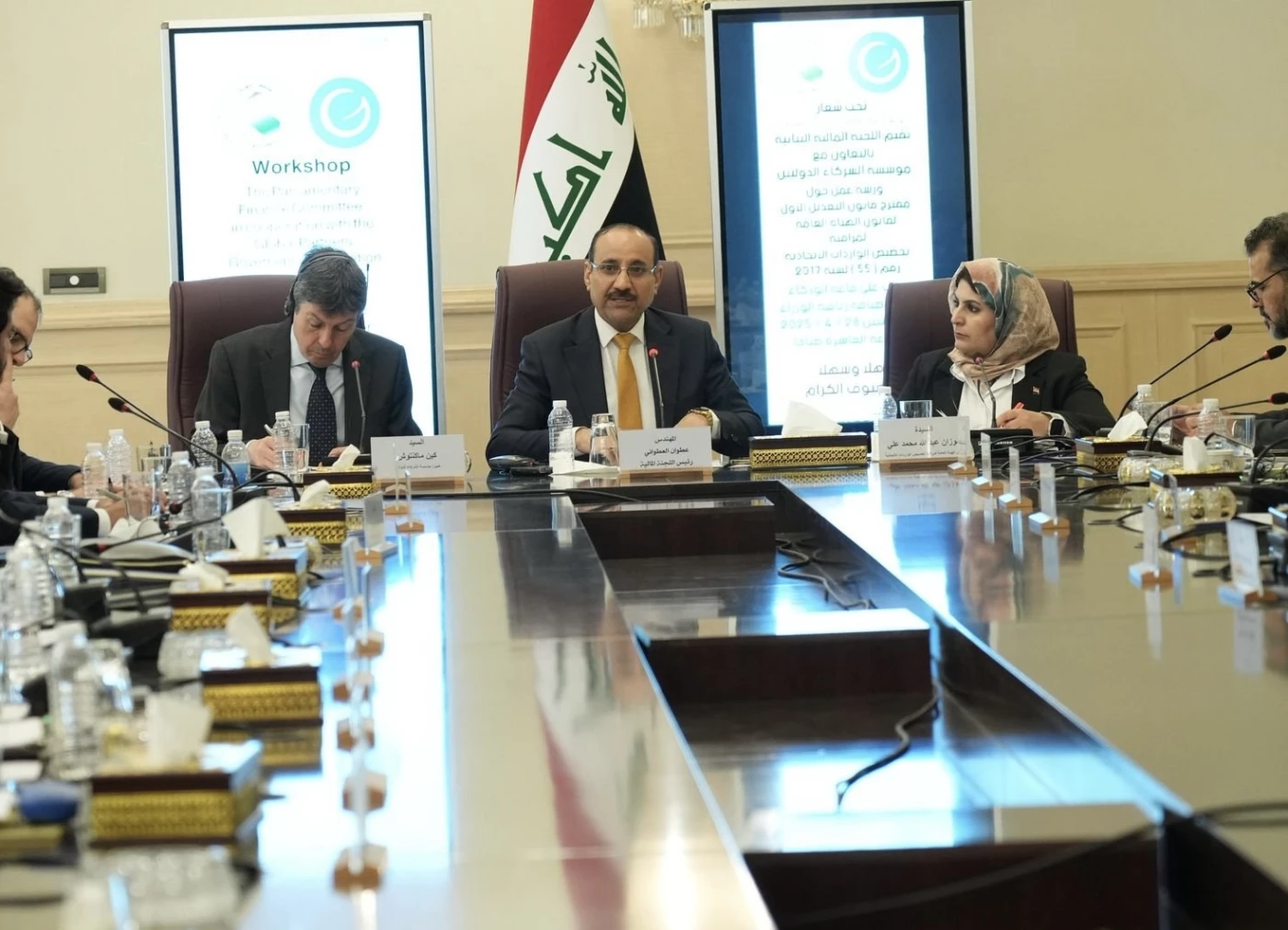DUBAI, UAE - The Iraqi parliament’s finance committee on Monday discussed the impact of oil price fluctuations on the federal budget, alongside proposed amendments to the Federal Revenue Allocation and Oversight Authority Law No. 55 of 2017, during a two-day workshop hosted in cooperation with the International Partners Institution.
The committee convened experts, advisors, university professors, and officials from relevant government bodies to explore ways to enhance revenue generation and strengthen financial oversight.
Atwan al-Atwani, chairman of the committee, said the growing complexity of Iraq’s economic landscape has made it necessary to review and update the Authority’s legal framework. He said the current law is insufficient to meet emerging challenges or achieve the Authority’s ambitious goals, and that the committee is leading a significant legislative effort to introduce the law’s first amendment.
“The fluctuations in oil prices and their impact on the budget compel us to seek alternative and sustainable sources of revenue,” said Atwani Hu.
The International Partners Institution delivered a presentation led by Ken Macintosh and Lord Jeremy Purvis, outlining key challenges facing Iraq’s economy. They emphasized the Authority’s pivotal role in monitoring revenue allocations to promote financial stability and transparency.
According to a statement from the parliament’s media team, the first amendment, which recently completed its first reading in Parliament aims to enhance the Authority’s role in several areas. These include verifying the fairness of revenue distribution during the preparation of the federal budget, ensuring accuracy of allocations based on specific criteria, and requiring government entities to provide necessary information and documentation.
The workshop also hosted ministry representatives to exchange views, focusing on the need to expand the Authority’s responsibilities to evaluate financial performance and efficiency across government institutions. Clearer definitions of the Authority’s powers are also necessary to prevent overlap with other agencies, according to participants.
The main objective of the workshop was to gather feedback from key stakeholders including federal ministries, the Kurdistan Regional Government, provincial governments, financial and legal experts, and the International Partners Institution, to refine the draft amendment.
Organizers said they aim to finalize the proposal based on this input before presenting it for a second reading in Parliament.
The workshop also explored ways to enable the Authority to efficiently manage its expanded responsibilities.



 Facebook
Facebook
 LinkedIn
LinkedIn
 Telegram
Telegram
 X
X


